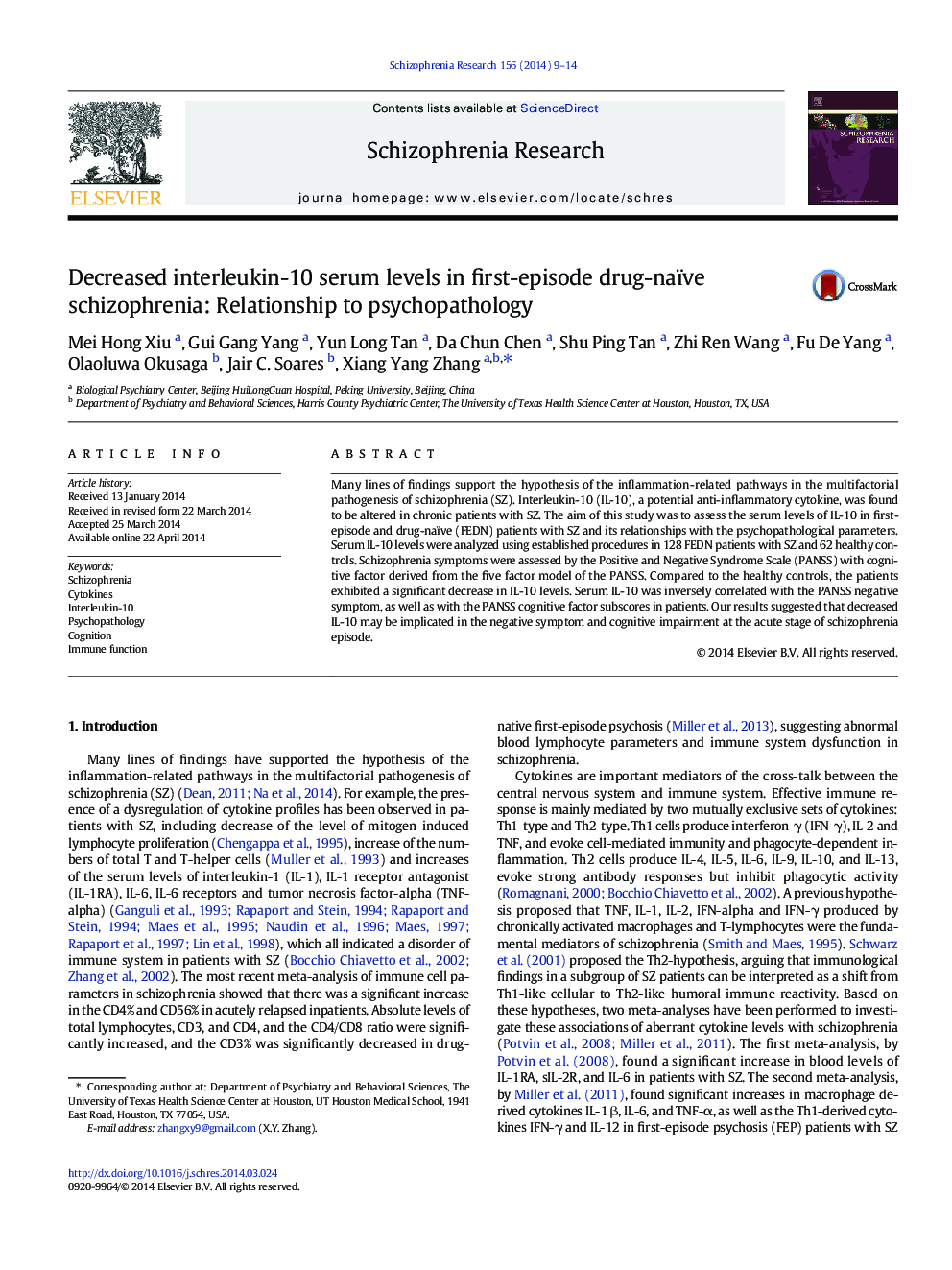| Article ID | Journal | Published Year | Pages | File Type |
|---|---|---|---|---|
| 10307429 | Schizophrenia Research | 2014 | 6 Pages |
Abstract
Many lines of findings support the hypothesis of the inflammation-related pathways in the multifactorial pathogenesis of schizophrenia (SZ). Interleukin-10 (IL-10), a potential anti-inflammatory cytokine, was found to be altered in chronic patients with SZ. The aim of this study was to assess the serum levels of IL-10 in first-episode and drug-naïve (FEDN) patients with SZ and its relationships with the psychopathological parameters. Serum IL-10 levels were analyzed using established procedures in 128 FEDN patients with SZ and 62 healthy controls. Schizophrenia symptoms were assessed by the Positive and Negative Syndrome Scale (PANSS) with cognitive factor derived from the five factor model of the PANSS. Compared to the healthy controls, the patients exhibited a significant decrease in IL-10 levels. Serum IL-10 was inversely correlated with the PANSS negative symptom, as well as with the PANSS cognitive factor subscores in patients. Our results suggested that decreased IL-10 may be implicated in the negative symptom and cognitive impairment at the acute stage of schizophrenia episode.
Related Topics
Life Sciences
Neuroscience
Behavioral Neuroscience
Authors
Mei Hong Xiu, Gui Gang Yang, Yun Long Tan, Da Chun Chen, Shu Ping Tan, Zhi Ren Wang, Fu De Yang, Olaoluwa Okusaga, Jair C. Soares, Xiang Yang Zhang,
